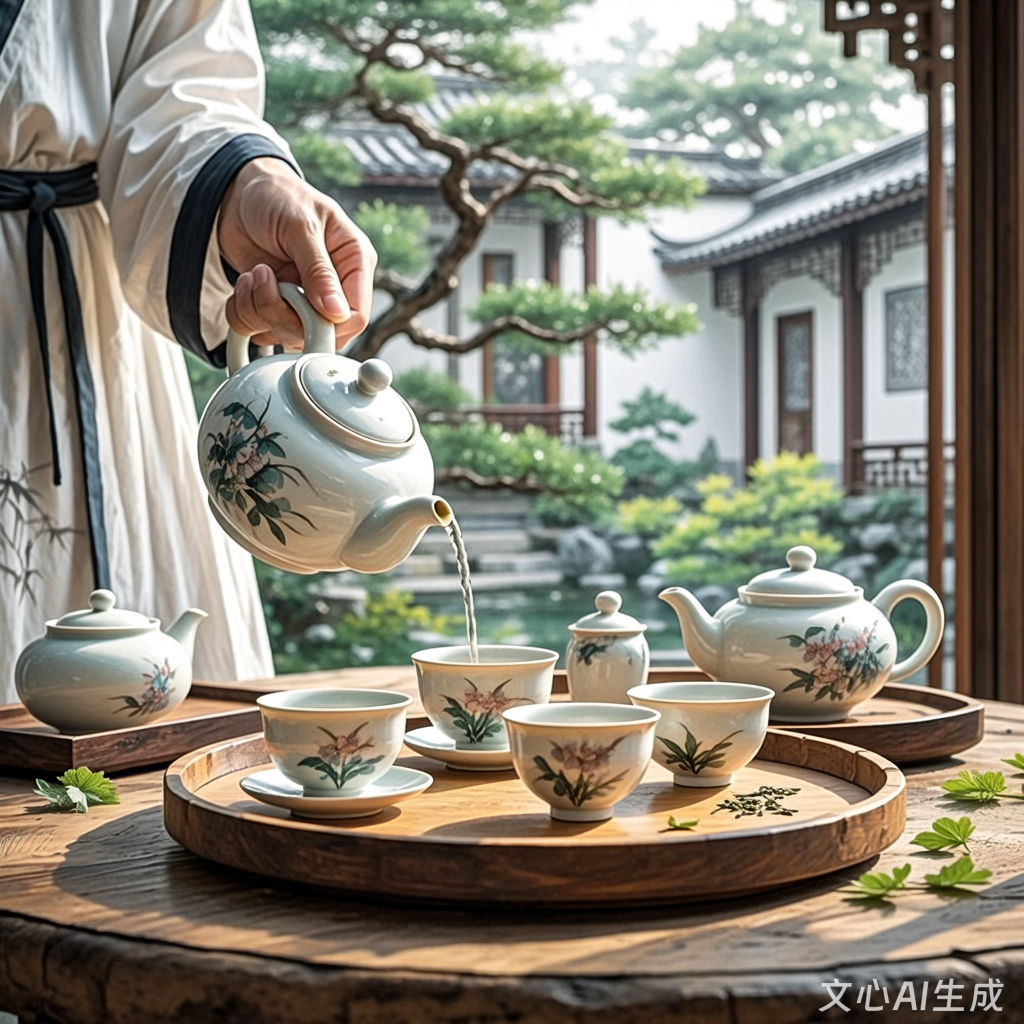
The Timeless Elegance of Chinese Tea Culture
The Timeless Elegance of Chinese Tea Culture
Introduction
China’s tea culture, a harmonious blend of history, philosophy, and artistry, was inscribed on UNESCO’s Intangible Cultural Heritage List in 2022. More than a beverage, tea embodies spiritual refinement, social bonds, and a connection to nature. Let’s journey through its 5,000-year legacy.
1. Historical Roots: From Medicine to Meditation- Mythical Origins: Legend credits Emperor Shennong with discovering tea’s detoxifying properties after testing hundreds of plants.
- Evolution: Tea transitioned from medicinal herb to ceremonial drink during the Tang Dynasty, thanks to Lu Yu’s The Classic of Tea, which elevated brewing to an art.
- Buddhist Influence: Monks in mountain monasteries cultivated tea for meditation, shaping its spiritual significance.
- Green Tea (e.g., Longjing)
- Unfermented, retaining fresh, grassy notes.
- Health Benefits: Rich in antioxidants, boosts metabolism.
- Black Tea (e.g., Keemun)
- Fully fermented, with a robust, malty flavor.
- Ideal for morning energy.
- Oolong Tea
- Semi-fermented, balancing green tea’s freshness and black tea’s richness.
- Popular in Fujian’s Gongfu ceremonies.
- White Tea
- Minimally processed, delicate and floral.
- Pu-erh Tea
- Aged dark tea, valued for digestive benefits.
- Yellow & Jasmine Tea
- Rare yellow tea and fragrant jasmine blends.
- Philosophy: Rooted in Harmony (和), Respect (敬), Purity (清), Serenity (寂).
- Steps:
- Select Tea: Match tea type to season (e.g., green tea in summer).
- Prepare Water: Use spring water heated to 80–100°C.
- Brewing: Use Yixing clay teapots for optimal flavor.
- Serving: Pour with both hands to show respect.
- Tools: Porcelain teapots, bamboo scoops, and “fairness cups” ensure equal serving.
- Physical:
- Antioxidants reduce chronic disease risks.
- L-theanine in green tea enhances focus and relaxation.
- Mental:
- Ceremonies promote mindfulness and stress relief.
- Social:
- Teahouses foster community, from ancient “tea talks” to modern gatherings.
- UNESCO Recognition: Highlights tea’s role in preserving cultural identity.
- Global Appeal: Matcha lattes and milk tea reflect adaptability while honoring traditions.
Conclusion
Chinese tea culture is a living heritage, offering a bridge between past and present. Whether sipping a delicate Longjing or sharing a pot of Pu-erh, tea invites us to slow down and savor life’s simplicity.As we explore the world of tea, we discover not just a beverage, but a rich tapestry of history, culture, and connection. Each cup tells a story, from the lush tea gardens of China to the bustling streets of Tokyo, where tea ceremonies are a cherished art form.
6. The Art of Tea Preparation
Brewing tea is an art that varies across cultures. In Japan, the meticulous process of the tea ceremony emphasizes precision and respect, transforming a simple act into a meditative experience. In contrast, the British afternoon tea tradition celebrates social interaction, complete with scones and finger sandwiches. Each method reflects the values and aesthetics of its culture, inviting us to appreciate the nuances of preparation.
7. Health Trends and Innovations
In recent years, tea has gained popularity as a health trend, with new blends and flavors emerging to cater to diverse tastes. Herbal teas, rich in vitamins and minerals, offer alternatives for those seeking caffeine-free options. Superfood infusions, combining tea with ingredients like turmeric and ginger, highlight the ongoing innovation in the tea industry, making it accessible and appealing to a broader audience.
8. Sustainability and Ethical Sourcing
As awareness of environmental issues grows, so does the importance of sustainable tea production. Many tea brands are now committed to ethical sourcing, ensuring that farmers receive fair wages and that the land is cared for. This shift not only supports local communities but also helps preserve the delicate ecosystems where tea is grown, allowing future generations to enjoy this beloved beverage.
In summary, tea is more than just a drink; it is a cultural phenomenon that continues to evolve. From its health benefits to its role in fostering community, tea remains a timeless companion in our fast-paced lives. So, whether you’re enjoying a quiet moment alone or sharing a pot with friends, take a moment to appreciate the journey of tea and the connections it creates.










